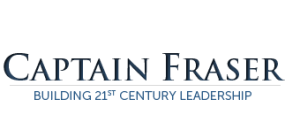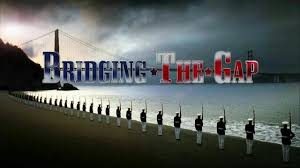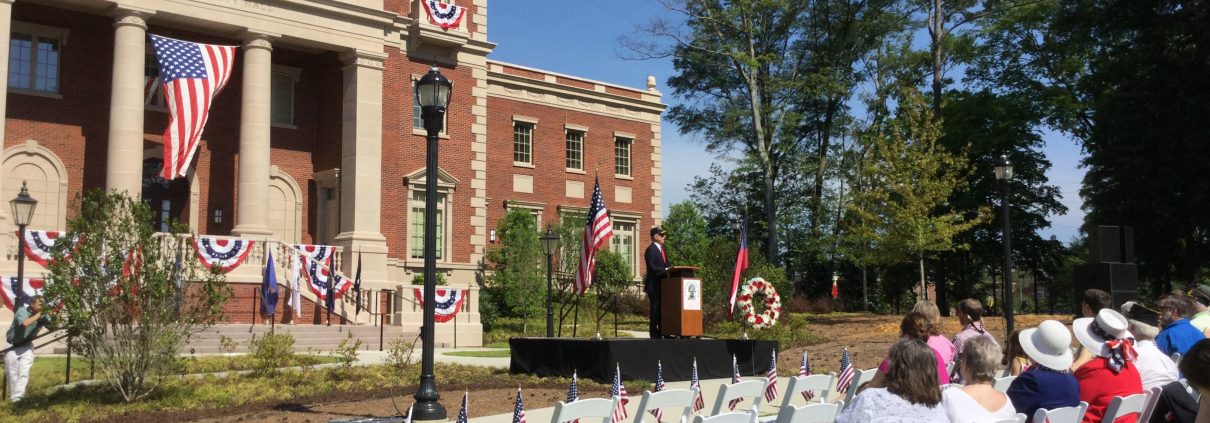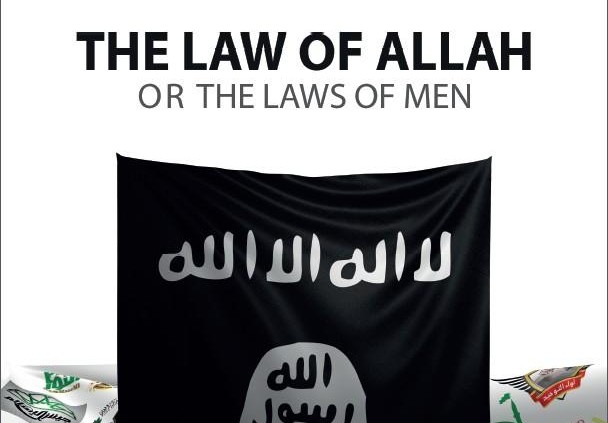Who is Accountable for Ship Collisions?
/0 Comments/in Uncategorized /by afraser722@gmail.comThe Navy just released the report of its investigation into the separate collisions of two Navy destroyers with merchant ships (http://bit.ly/2hmzAra). The U.S Naval Institute provides a good summary (http://bit.ly/2i7MpGT). From my viewpoint as a former destroyer and cruiser ship captain, the report accurately lays the blame primarily on each captain’s failure to ensure his bridge and radar watch teams were adequately trained in basic seamanship and coordination. The teams did not know the basics of driving a ship over the ocean. The captains were fired as a result. Accountability runs deep in the Navy.
I am sure the crews were well trained to fire missiles, shoot guns, or launch torpedoes; there are training teams that board ships to help certify those qualifications. There are no teams that can adequately teach bridge and radar watch standers to coordinate with each others and maintain situational awareness at night in heavy shipping lanes. That’s the captain’s job. That requires the captain to train and certify watch standers…and be on the bridge when other ships are in close vicinity. For instance, I had a standing order that I was to be called by the officer of the deck whenever the projected closest point of approach of another ship was withing 5 miles of my ship. The officer would describe the situation and what he intended to do about it. If he made a mistake in his recommended course of action, he lost my certification for his watch qualification until I trained him better. It was my job to train him…my fault he did not know the right course of action.
The lessons learned over the years is that when the captain assumes personal accountability for anything that happens on a ship, fewer mistakes are made…same for business leaders ashore. 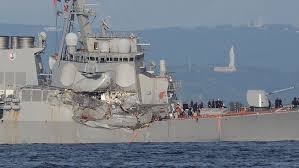
Where Have The Civil-Military Connections Gone?
/0 Comments/in Memorial Day, Speeches, Uncategorized /by afraser722@gmail.comIt was across the road from the only drive-in hamburger stand in town. It was where we as kids looked through the fence at the big Army trucks parked behind the tall roof building. We held high school dances there.
It was the National Guard Armory, one of many in towns across America built after Pearl Harbor, and it was the home of an Army transportation company. It was the place which visibly connected the military to the community.
It’s gone now. So is the connection. Like other armories in towns across America, cost efficiency has dictated consolidation into big bases.
If the loss of armories is a visible sign of changing times, so is the Army-Navy game. When the Cadets and Midshipmen march into the stadium before the game, we watch the faces of people who are becoming personally involved in protecting America.
Here in Atlanta, many of us personally know an active duty serviceman or servicewoman…or the family of one.
Not so across America. Participation or connection to the military is being lost in some significant categories. The Pew Research Center has found that while a majority of older Americans have family connections, only a third of the 18-29 year-olds do.
Most of our military today comes from rural areas and the South. Nearly half of the active duty members live in just five states: California, Virginia, Texas, North Carolina, and Georgia.
Most of our military today comes from middle income families; high income and low income families are increasingly not represented.
Thus the military community is becoming more insular. The connection between most Americans and our armed forces is fading away. We may publicly say thanks for their service, but we have no real family or personal connection.
In losing the personal connection built following Pearl Harbor, many Americans no longer are really concerned with how our military is used. We should be.
When the nation goes to war, so should the American people. Over the past few decades of America at war, the attitude of “we shop while they fight” is the norm. No tee time has been affected.
Pearl Harbor and the Army-Navy Game should remind us to vote carefully on how our military is used.
Andrew Bacevich in the September/October issue of the Foreign Affairs magazine makes some interesting suggestions. To keep the connection, he proposes that anytime America goes to war, like Iraq or Afghanistan, we put in place a special tax to pay for it.
He suggests a smaller standing all-volunteer Army, but a larger reserve consisting of individuals DRAFTED from across America’s demographics and geography. Draftees would represent various race, gender, ethnicity, region, class, and family incomes of American society. No exemptions.
Make changes like this and Americans will come up close and personal with the use of our military. Voters will take into account how and why America’s military is being used. Insuring America’s future will result
Pearl Harbor, where casualties were greater than for Americans in all of WW I, should cause to think about our military in a way that is above just saying thanks to its survivors.
The Army-Navy game, when the cameras show the faces of the midshipmen and cadets, should makes us think about how each of us should be personally involved in the defense of our freedoms.
Freedom will require American’s military and civilians to stay connected.
City of Alpharetta Memorial Day Ceremony Key Note Address
/0 Comments/in Memorial Day, Speeches /by afraser722@gmail.comGood morning everyone and thank you for that kind introduction. You forgot to add one key point, however. You forgot to add that neither of the ships I commanded sank while I was captain. That’s important to ship captains.
As Dick Gregory once quipped: “When I was in the Army, if I lost my rifle they would charge me $87…that’s why captains go down with their ships.
On February 20th, 1942, Commander Edward O’Hare became the first American fighter ace when he single handedly attacked a formation of nine heavy bombers approaching his aircraft carrier. He became the first naval recipient of the Medal of Honor in WW II.
The following year, while he was leading the U.S. Navy’s first-ever nighttime fighter attack, his aircraft was shot down.
We all know Edward O’Hare. Chicago’s O’Hare Airport is named in his honor.
Across America today ceremonies such as the one we are having are being held to honor the devotion and sacrifice of Commander O’Hare and the over 1.3 million Americans who gave their lives for our nation. For them it was service above self.
I have the task of speaking to you today. Words are inadequate. I have no illusions that I can add to the silent testimony of those who gave their last full measure for their country, whose sacrifices are evident from the cemetery on the beaches at Normandy, to the hills at Arlington, to the rows of tombstones in the Philippines
Today we should also remember the sacrifices of families of those who died. Until part way through the Vietnam War, notices of the death of a serviceman were sent via telegram delivered by a taxi driver.
Picture the site of a row of small homes on a military base when a taxi drives slowly along looking for a house number. From behind curtains on the street wives and children are watching, hoping the taxi drives past their house. Then it stops. The driver rings the doorbell; hands the wife the telegram and walks away as she collapses in tears. In an all too repeated scene, the neighbors rush to be with her, knowing in the back of their minds the taxi might stop at their house tomorrow.
The military does not notify family members that way anymore. Today a team of soldiers and chaplains do the notification in a very sensitive and caring manner.
Milton said it best: “Those also serve who stand and wait.”
Abraham Lincoln noted in his brief remarks at the dedication of a small cemetery at Gettysburg:
“It is rather for us to be here dedicated to the great task remaining before us—that from these honored dead we take increased devotion to that cause for which they gave their last full measure of devotion.”
The question we should ask ourselves this morning is how we can dedicate ourselves and how we can increase our devotion.
I want to submit to you today that we can honor those who fell in how we personally live our daily lives.
Those who have served in the military, both living and dead, share some common principles that we learned in boot camp. Maybe by understanding these principles we might be able to lead more productive lives ourselves.
Let me tell you my story of learning the common principles.
I’ll start first in the Persian Gulf
On November 1st, 1991, the ship that I commanded was patrolling in the northern part of the Persian Gulf as a radar picket ship. We were the closest ship to Iraq and were responsible for alerting the rest of our military forces of any air or surface attack heads south.
Suddenly, over the general announcing system, I hear the word passed: “This is not a drill. General Quarters! General Quarters! All hands man your battle stations. Inbound unknown aircraft.” The loud gongs of the general alarm started sounding throughout the ship.
Sailors started running to their battle stations. Projectiles were loaded in the guns. Missiles were made ready to shoot. Hoses were laid out to fight any fires.
I was in the back of the ship. My battle station at general quarters is in the Combat Combat Center. It was a long way from where I was to where I needed to go.
With sailors energetically racing all around me to their battle stations, I was faced with a decision. As the captain, do I walk or do I run to my battle station.
I’ll tell you what I did in a few minutes.
My decision was based on the principles I learned during the Naval Academy boot camp.
I really learned those principles in first sixty seconds.
When I walked out of the induction center door, an upperclassman got a few inches from my face and yelled, literally yelled: “Mr. Fraser, stand at attention, look straight ahead, tuck your chin in, what’s your laundry number?”
I answered: “I don’t know, sir.”
“Don’t know? Don’t know?” he yelled. “Don’t know is never an answer in the Navy. Drop for fifty push-ups. When you get to fifty, let me know. Don’t get up.”
I did fifty and stayed on my hands and toes. This upper classman started yelling again.”
“Mr. Fraser, there are only four answers to a question: “No excuse, sir!” I’ll find out, sir!” “Yes or no, sir”…and you’d better tell the truth or we kick you out here…and “aye, aye, sir!”…we don’t say “ok” here, we respond with enthusiasm.”
“Now get up. The number is on the back of your name tag.”
To this day I know my laundry number: 722639.SIR!
What I didn’t know at the time was that in those four answers I had just learned the four basic principles learned in boot camps by millions of trainees over the years…and by which we can all lead our lives.
They all support the concept of Service Above Self…of Duty, Honor, Country.
NUMBER ONE
First: No excuse,sir” teaches us the importance of the pressure of having a mental attitude of total, personal accountability. That pressure forces us to do better in everything. It also prevents disasters.
USS Hobson
A number of years ago a destroyer was screening an aircraft carrier at night. When the carrier altered course, the officer-of-the-deck became confused, turned the wrong way, and the ship was hit and cut in two by the carrier. The captain and 176 sailors went down with the ship.
At a subsequent hearing, the captain was found responsible for the sinking even though he was not on the bridge when the destroyer turned the wrong way and was killed in the accident. He had not trained his officers sufficiently.
The Wall Street Journal wrote an editorial article on this incident that in part said:
“It is cruel this accountability of good and well-intentioned men. But the choice is that or an end to responsibility and finally, as the cruel sea has taught, and end to the confidence and trust in the men who lead…
And when men lose confidence and trust in those who lead, order disintegrates into chaos and purposeful ships into floating derelicts.”
The same principle of accountability applies to business, at home, and to government.
Tylenol
In September of 1982, six people died of poisoned Tylenol tablets. How many bottles were poisoned was not known.
Feeling his accountability to his customers, the chairman of Johnson and Johnson, against all the advice of his advisers, ordered every bottle of Tylenol removed from every shelf in the world.
Johnson and Johnson is a great company today because of that decision…not a floating derelict.
We ought to also have a sense of accountability to our wounded veterans.
There are lots of ways to do that.
One example is the Shepherd Center here in Atlanta. The Shepherd Center has a military initiative that treats brain injured soldiers…medically and psychologically.
Every day 22 of our veterans commit suicide. None of the veterans who have been treated at the Shepherd Center have committed suicide. Patients receive care that is largely unfunded by insurance or the government and does so at no cost to the patient. That’s why my book royalties are going to Shepherd.
“No excuse” A sense of accountability is principle one. It is critical to the success of our lives and our country.
NUMBER TWO:
The second principle is “I’ll find out.” just taking time to think…”
Torpedo Bomber
On June 4th, 1942, Lieutenant Commander John Waldron was leading his torpedo squadron in search of the Japanese carrier force off Midway. The Japanese were not where they were expected. Waldron had done his own thinking and calculations and thus led his squadron of old, very slow planes in his own direction and soon found the Japanese carriers.
He attacked immediately at sea level altitude without fighter air cover, and in the process drew most of the Japanese defending fighters down to his level. Every single one his planes was shot down, but with the Japanese defending planes now at sea level, the American dive bombers suddenly appeared overhead and attacked without being hassled by enemy fighters.
Four of the five carriers were sunk in the next few minutes. Most of the carriers which had attacked Pearl Harbor were now destroyed.
If Waldron had not taken time to think, the world might look at lot different today.
If he had not found the Japanese and attacked without fighter cover, we probably would have lost the Battle of Midway and our last remaining carriers, lost Hawaii, had to shift our military from the Europe to the Pacific to defend the West Coast, delayed attacking Hitler, and thus provided him time to fully develop a nuclear weapon his team was building. Europe would look much different today.
It doesn’t because he took time to think.
“I’ll find out”—thinking. It allows us to be ready not only for what happens to us but how we respond to what happens to us.
NUMBER THREE:
The third principle is ethics…knowing right from wrong, telling the truth when we say yes or no. Ethics creates trust. Trust in each other is critical at sea, in our businesses, and at home.
Richard Anderson, the former Chairman of Delta, once remarked that only companies and countries with ethics long survive.
Ethics is something most noticeable when it’s missing in an organization. We are offended when someone cheats. But why are we surprised?
Football Game
Take for instance a football game where a receiver seemingly catches a pass, but there is a challenge stating that he trapped it instead of catching it. Minutes pass while the catch is viewed from every TV angle possible.
Do you ever wonder why the refs don’t just ask the player? Why is the philosophy accepted that it is ok to do something on the playing field as long as you are not caught?
Why then are we angered at companies like Volkswagen hiding the results on emission tests.
If we all want to be trusted, we need to have a strong sense of right and wrong. To do that we should write down our sense of right and wrong.
We can start with “do to others as you would have them do to you.”
I think the Rotary Four Way Test and the statements of similar organizations is a good start too.
-Is it the TRUTH?
-Is it FAIR to all concerned?
-Will it build GOODWILL and BETTER FRIENDSHIPS?
-Will it be BENEFICIAL to all concerned?
Ethics creates trust.
We learned trust in boot camp.
NUMBER FOUR:
The fourth principle is motivating ourselves so we lead productive and meaningful lives…saying aye aye with enthusiasm.
The danger of being shot at is highly motivating. How do we translate that into our everyday lives? We know what to do, how to do it, but we need also to know why we do it.
Apple
When Steve Jobs first started Apple, his mission statement was not to make the best computers but instead read in part: “to make a contribution to the world by making tools for the mind that enhances humankind.” That “why” of Apple attracted talent that made Apple what it is toda
Chamberlain
In his historical novel Killer Angels, Michael Shaara tells a story that applies today as it did then.
As the 20th Maine regiment was marching towards Gettysburg in 1863, Regimental commander Colonel Joshua Chamberlain, called his soldiers together for a quick motivational talk. Here, on the eve of the battle that would decide the war, is what he said:
“This is a different kind of Army. You go back through history you will see men fighting for pay, for women, for some other kind of loot, for land, for power, or because a king leads them, or because they like killing. But we are here for something new. This has not happened much in the history of the world. We are an Army out to set other men free.
No man has to bow; no man is born to royalty. Here we judge you by what you do, not by who your father was. Here you can be something. Here is the place to build a home.
But it is not the land. There is always more land. It is the idea that we all have value, you and me. What we are fighting for, in the end, … we are fighting for each other.”
We all are motivated when we know why we do things. Those who gave their lives knew why. Doing things for others should be our personal “why.”
We were taught to learn the “why” in boot camp.
Walked, not Ran
For me on that day in the northern part of the Persian Gulf, because I felt a strong sense of personal accountability as captain, I had spent time thinking about our response to an inbound aircraft and trained the crew to respond. I trusted the crew to follow those responses. I trusted the tactical action officer, who in my absence had the authority to defend the ship.
And we were all motivated because we knew the why of our mission in the northern part of the Persian Gulf
So I walked to my battle station…though a little more briskly than normal.
Closing
So on this Memorial Day
—Let’s remember Abraham Lincoln’s final words in dedicating the Gettysburg Cemetery:
That we here highly resolve that these dead shall not have died in vain – that this nation, under God, shall have a new birth of freedom – and that government of the people, for the people, and by the people shall not perish from this earth.”
—Let us apply daily the principles so many millions of service men and women have learned over the years.
- And let us leave with an American hymn in our hearts:
O beautiful for heroes proved
In liberating strife,
Who more than self their country loved
And mercy more than life!
America, America
God shed his grace on thee
And crown thy good with brotherhood
From sea to shining sea!
May God Bless the City of Alpharetta, and the United States of America.
Know the Enemy
/0 Comments/in Uncategorized /by afraser722@gmail.comAt the National War College reading Sun Tsu is required reading. My most memorable take away was the following statement:
“If you know the enemy and know yourself, you need not fear the result of a hundred battles. If you know yourself but not the enemy, for every victory gained you will also suffer a defeat. If you know neither the enemy nor yourself, you will succumb in every battle.”
ISIS is an enemy; knowing them is job one before battle. Here is a link to the ISIS publication Dabiq that can help us : http://www.clarionproject.org/news/islamic-state-isis-isil-propaganda-magazine-dabiq.
The Four Way Test for Christmas
/0 Comments/in Uncategorized /by afraser722@gmail.comI was watching last week the movie “Love Actually.” It’s become an annual tradition in my family, along with Chevy Chase’s “Christmas Vacation.” Chevy reminds me not to plug in too many lights. “Love Actually” reminds me that the Christmas season is in part about honest relationships. Non-Christians have separate times of the year to do the same; but since this is the Christmas season, I’m using this time of year to make a point.
The point is that Christmas should be a time to focus on business relationships as well as personal and spiritual relationships. One of the themes running through the various plots in “Love Actually” is that Christmas is the time to tell the truth. In the movie, that moral theme emboldens characters to strengthen relationships through being honest.
Christmas should also be a time to strengthen business as well as personal relationships. That can be done by thinking about a company’s core values. Richard Anderson, the Chairman of Delta Airlines, says the graveyard of corporate failures is filled by companies that had no sense of values.
Values are a set of moral guidelines. These guidelines can be rooted in various foundations, with religions the primary sources throughout history. That history is changing as secularism becomes more prominent, so it’s more important than ever to have a time set aside to think about morals.
David Brooks muses in a column in the New York Times on the impact of secularism on morals and relationships. He notes: “…an age of mass secularization is an age in which millions of people have put unprecedented moral burdens upon themselves…”
Any religious season, or any secular reminder, should make us think about our own business “moral burdens.” Where do we start to develop moral guidelines? We would do well to adopt for starters the basic historic religious and secular principle: “Do to others as you would like them to do to you.”
There are other good guidelines, but the one I think best for business relationships is the Rotary Four Way Test in what we think, say, and do:
1. Is it the truth?
2. Is it fair to all concerned?
3. Will it build good will and better friendships?
4. Will it be beneficial to all concerned?
Amongst all the things for which we are reminded at Christmas, thinking about how we implement our business values is one that will make the year ahead more meaningful and successful.
